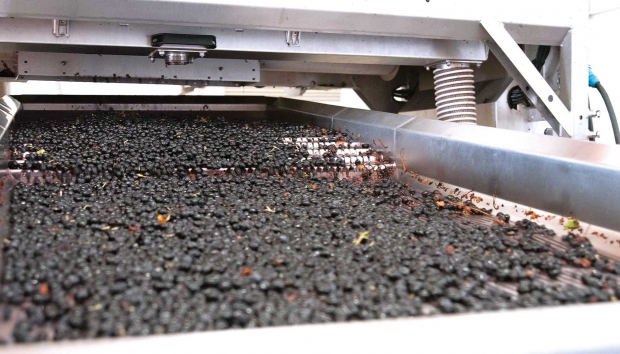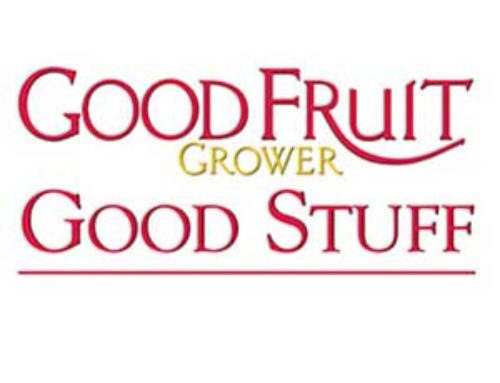
A new optical sorting machine was in place for the 2014 crush at Canoe Ridge Estate Winery.(Melissa Hansen/Good Fruit Grower)
The Washington State Wine Commission has approved a list of research priorities for the coming year.
The list was assembled by the Wine Research Advisory Committee, which serves as the wine commission’s scientific review arm.
The commission surveyed wineries, grape growers and researchers in putting together the list.
The program’s current cycle, which started July 1, funded more than $1 million in viticulture and enology research at Washington State University.
Washington state Viticulture and Enology research priorities
July 1, 2017-June 30, 2018
Fermentation Management
- Phenolic measurement and management
- Yeast strains, including indigenous (influence on fermentation, sensory properties, etc.)
- Management of microbiological spoilage (Brettanomyces, Lactobacillus, Pediococcus, etc.)
- Management at winery of diseased/disordered fruit (Botrytis, bunch rot, shrivel)
- Impact/management of nutrients on fermentation (e.g. fermentation adjuvants)
- Fermentation management and monitoring (cap extraction, process control, real-time methods, etc.)
Aroma and Flavor Compounds in Wine
- Impact of various filtration options on wine quality (chemistry, mouth feel, oxygen impact, etc.)
- Vineyard-derived sulfur off aromas—avoidance and removal
- Optimizing sensory compounds in wine (e.g. role of glutathione on oxidation)
- Smoke taint analysis and removal
Winery Waste
- Develop methods to recycle/reuse/repurpose biomass from harvest
- Winery waste and water management
Viticulture Production Efficiency and Profitability
- Impact of canopy management/mechanization on wine quality
- Improve water use efficiency/water savings to optimize grape production and wine flavors
- Impact on vine health from water quality (salinity, alkalinity, others)
- Develop nutrient management for optimal vine health
- Develop/assess labor-savings crop estimation tool
- Berry and sour shrivel
- Optimize clonal selections for Washington State
- Impact of field grafting (vinifera to vinifera)
Pest Control, including Sustainable and Organic
- Develop strategies for viral disease management (preventing spread, replanting, impact on vine health, developing vector control, etc.)
- Develop/refine strategies for all pests (insect, weeds, disease, vertebrate) with economic impact potential, with emphasis on stable, biological systems
- Trunk canker disease management
- Management of powdery mildew and Botrytis (early detection, efficacy of new fungicides, resistance management, etc.)
- Develop nematode management strategies (efficacy, economic thresholds, resistant rootstock)
- Develop effective control of birds, deer, gophers, and other vertebrate
Climate Impacts on Site/Viticulture
- Optimum light and heat exposure of fruit
- Impact of climate variability on fruit maturity, dormancy, phenology, pest/disease management
- Winter trunk injury and secondary infections (e.g. crown gall)
- Develop decision support system for inversion, frost protection (i.e. alert system)
Mechanization Options
- Development and evaluation of mechanization tools that reduce reliance on hand labor within the vineyard and winery (e.g. canopy management, pest management, crop reduction, sorting, MOG removal)
Emerging Issues
- Unforeseen viticulture and enology emerging issues
- Extension bulletins for transfer of research information (i.e. publication costs)
- Comparative analysis of WA viticulture practices to other regions (e.g. sustainable pest and disease management systems)






Leave A Comment